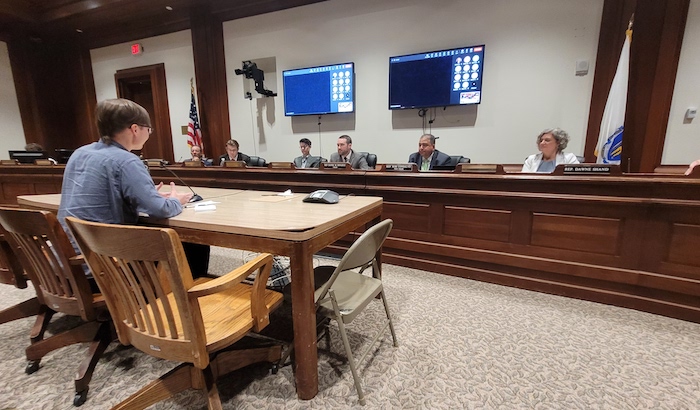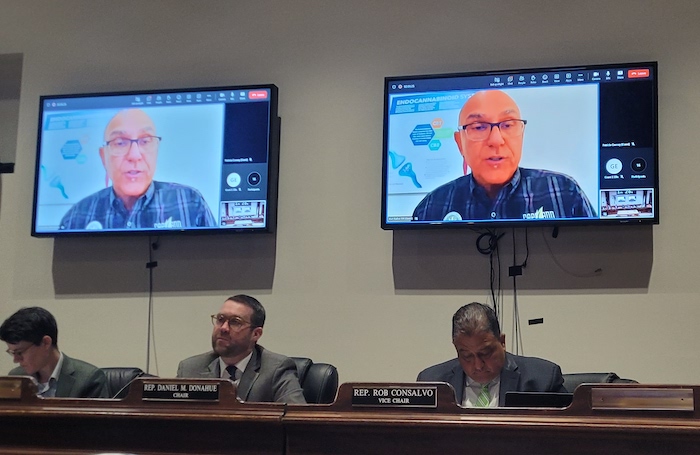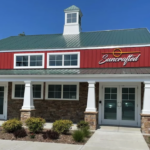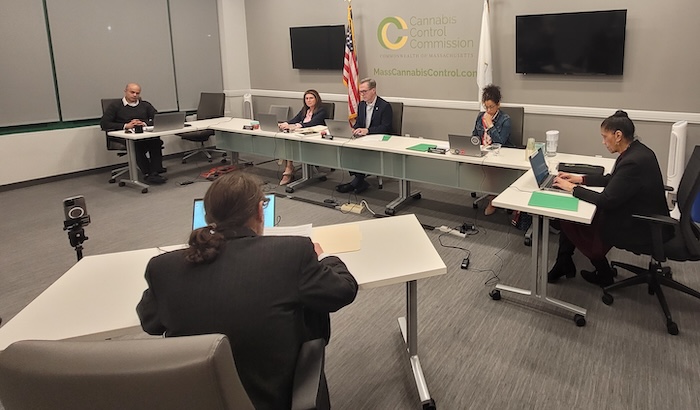
“The vertical integration requirement is the opposite of an equitable policy.”
Of eight cannabis-related bills that the Massachusetts legislature’s Joint Committee on Cannabis Policy heard testimony about on Tuesday, An act relative to vertical integration of medical marijuana businesses inspired the most people to show up, in person as well as virtually.
[Click here for our coverage of testimony on a bill that would increase standardization and transparency for testing labs]
Currently, the Bay State’s Medical Marijuana Program is exclusively open to vertically-integrated companies. As Jeremiah MacKinnon, the president of the Massachusetts Patient Advocacy Alliance, explained, “if any of you ever wanted to open up a medical marijuana dispensary, the current rules require that you have to actually grow your own cannabis and manufacture those products in addition to retailing it. And so that has driven out small businesses and prevented patients from getting access in certain areas of the state.”
The bill in play would change that, opening up opportunities for manufacturers and retailers that currently serve just adult-use patients to enter the medical market.
MacKinnon noted how his organization worked with the legislature to enact measures that have allowed the medical program to increase by 60%—even since adult-use cannabis started in Mass. Beyond that, he said the commission has been asked to reconsider the vertical integration requirement, but “unfortunately it’s just not something they’re taking up at this time.”
And so he and others have approached state lawmakers …
“We want to see patient access expanded,” MacKinnon said. “The state of Massachusetts should not be standing in the way of, say, an adult-use retailer that wants to add a medical register to their store because there are patients going to those adult-use dispensaries and unfortunately they’re having to pay tax for their medication because there’s not a medical dispensary within a reasonable distance of their neighborhood.”
As an example, MacKinnon noted Cape Cod, where some patients have to drive past half-a-dozen adult-use shops before they reach a medical store. “The vertical integration requirement is the opposite of an equitable policy,” he said. “For us to say that we are advancing equity in the cannabis industry, but only for adult use, is very unfair and it limits those businesses where they could expand.”
Frank Shaw, a patient advocate and member of the Massachusetts Cannabis Advisory Board (CAB), called the vertical integration requirement an “outdated relic” that can be traced to when the Department of Public Health had its hand in the medical nug jar. While in his turn, Kurt Kalker, a registered nurse who is on staff at Cape Ann Cannabis in Rowley, spoke about a “reduction in medical shops coming online as well as a reduction in medical types of products available to my patients across the state.”

Helen Gomez Andrews, a member of the state’s advisory board and certified women and minority-owned cannabis business owner of the High End in Holyoke, said her CAB subcommittee is recommending removing the vertical integration requirements. She offered her city as a prime example of a municipality where the adult-use industry is booming, but where there’s not a single medical dispensary in operation.
Bringing a slightly different perspective was Ellen Kasper of Alternative Compassion Services in Bridgewater. She spoke about how her medical-only dispensary opened in 2017, and was one of the early shops that helped “usher medical cannabis into Massachusetts.” “We fully intend to continue serving patients,” Kasper said, “but the present climate in the industry makes it almost impossible for a small locally owned and operated medical business to survive.”
She continued, “I do support equity in the cannabis industry, but I can’t support this bill as it is without some concessions and assistance and support being given to the medical dispensaries who are required to invest millions of dollars to vertically integrate. … Efforts should be made to provide relief to struggling small medical dispensaries that are currently operating and still working off those huge debts before allowing easier entry to medical sales in an already flooded market.”
“The idea for vertical integration was that it would control products and provide patients and dispensary staff assurance of known quality products,” Kasper added. “We sell almost exclusively our own products and can speak to and educate about them.”
Approaching the bill from yet another angle, Grant Smith Ellis, an independent journalist who covers the Mass industry and is also a disabled medical cannabis patient, took issue with a line in the proposal that says the commission (italics ours) “may promulgate the rules and regulations relative to medical license classes … and shall have the power to encourage full participation in the medical marijuana industry by people from communities disproportionately harmed by cannabis prohibition and enforcement.”
“This isn’t an equity mandate,” Smith Ellis said. “This is an equity option.”

























